Waste to value: upcycling plastics for women economic empowerment in Addis Ababa
Addis Ababa, one of the fastest growing cities in the world, is facing a constant struggle managing the ever-growing amount of waste produced across the city. Most of it is dumped on a landfill, which already exceeded its capacity years ago. This results in the pollution of water and soils, causing serious environmental and public health risks.
Waste management in the city involves collection of garbage at household level, sorting it by hand, delivering recyclable materials to wholesalers, and disposal of the rest. Plastics account for about 15,5% of the waste, and this component of the waste stream is increasingly attracting interest due to the recycling and reselling value of the material. Hundreds of small and micro enterprises (SMEs) are therefore active in this area of waste collection and separation, supplying the plastic recycling value chain.
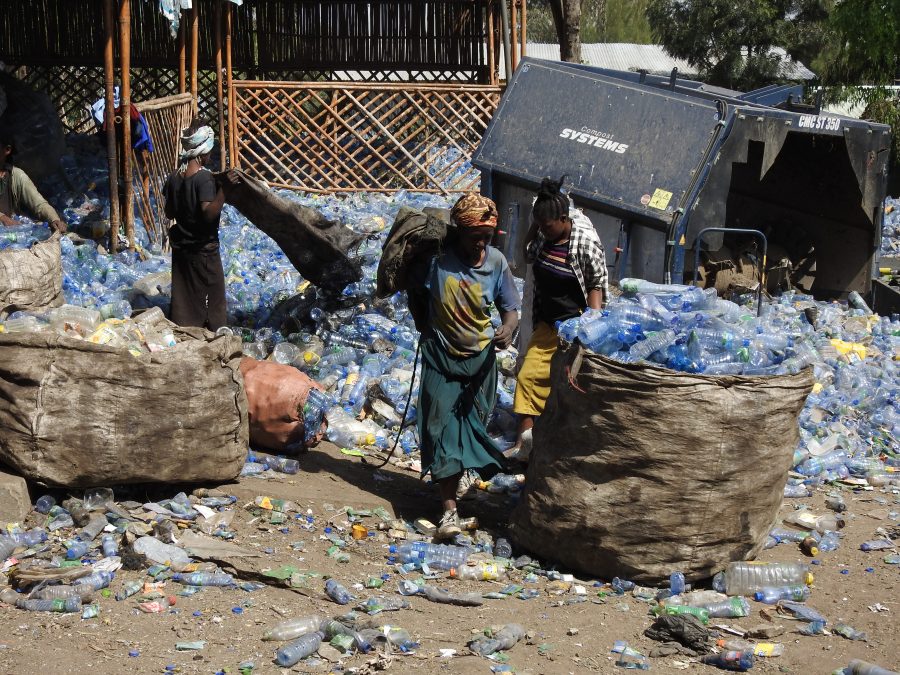
Enhancing cross-sectoral collaboration for improved waste management
To enhance the efficiency of waste management in the city and thereby protect the environment from pollution, NatuReS supported the establishment of the multi-stakeholder “Partnership for Circular Value Chains”. The partnership offers a forum to strengthen coordination between SMEs working in the waste sector, public authorities, as well as civil society representatives advocating for environmental protection. This prevents the doubling of efforts, miscommunication and inertia that have often impeded effective waste management in the city. Together, partners defined concrete solutions and take actions to improve the plastic value chain in and around Addis Ababa.
Female waste collectors as most vulnerable part of the plastic value chain
The most vulnerable part of the plastic value chain are the waste collectors. Hundreds of people roam the city as informal waste collectors, scavenging for valuable plastics, metals, or carton. Next to these informal collectors, hundreds of formalized SMEs, employing a large number of people, collect waste from households. The price for one kilogram of PET plastic that collectors get paid by wholesalers is currently around 22 Birr (~0,38€).
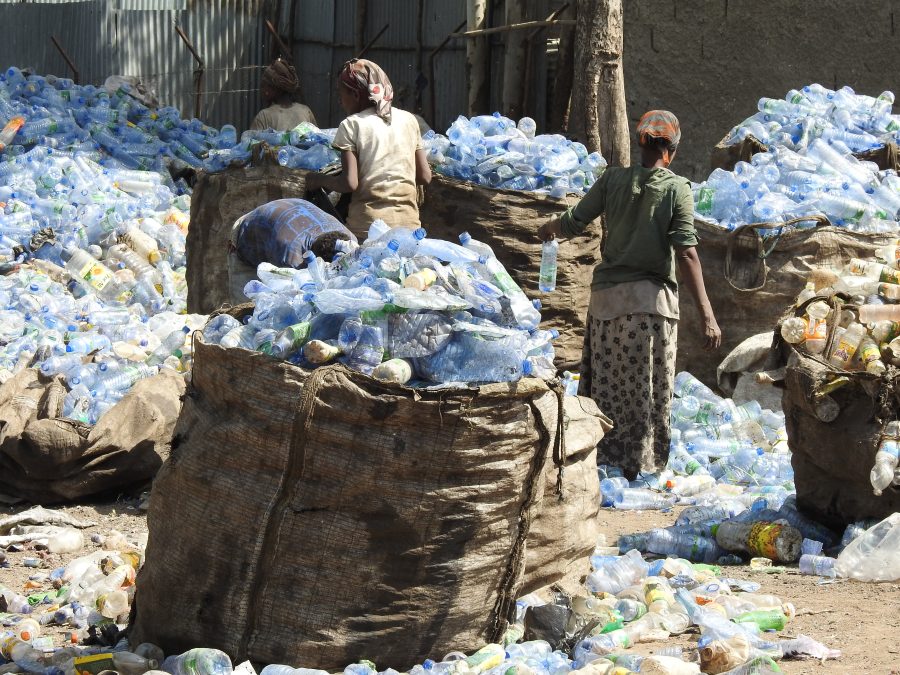
Among the workforce of waste collectors, there are several groups of marginalized people. Many struggle to make a living from this job, facing harsh working conditions, unstable prices due to inflation and diminishing profit margins. Women are especially affected by these issues. They work all along the plastic value chain, from being collectors at household level to small entrepreneurs in the recycling business. However, in comparison to men, women are underrepresented within SMEs, as they often lack basic technical skills beyond collecting waste and are excluded from decision-making processes.
Enhance waste management skills and business opportunities for women along the plastic value chain
The partnership therefore undertakes specific efforts to support women as part of the plastic waste workforce. Currently, 100 women from 16 waste management SMEs across four Addis Ababa sub-cities are capacitated to enhance their waste management skills and increase their business opportunities.
Firstly, during a three-day training, the women are supported in developing necessary business skills to run and grow their businesses. This includes aspects such as bookkeeping, understanding and developing market linkages, as well as the development of sound business plans to enhance their income.
Secondly, during practical sessions, the women receive skill development for diversified income strategies. This focused on plastic upcycling crafts, enabling the participants to make an income beyond collecting and re-selling plastic by upcycling their collected plastic waste themselves. Specifically, the 100 women were trained on techniques for the upcycling of plastic straps out of recycled PET plastic into baskets that can be sold on local markets.
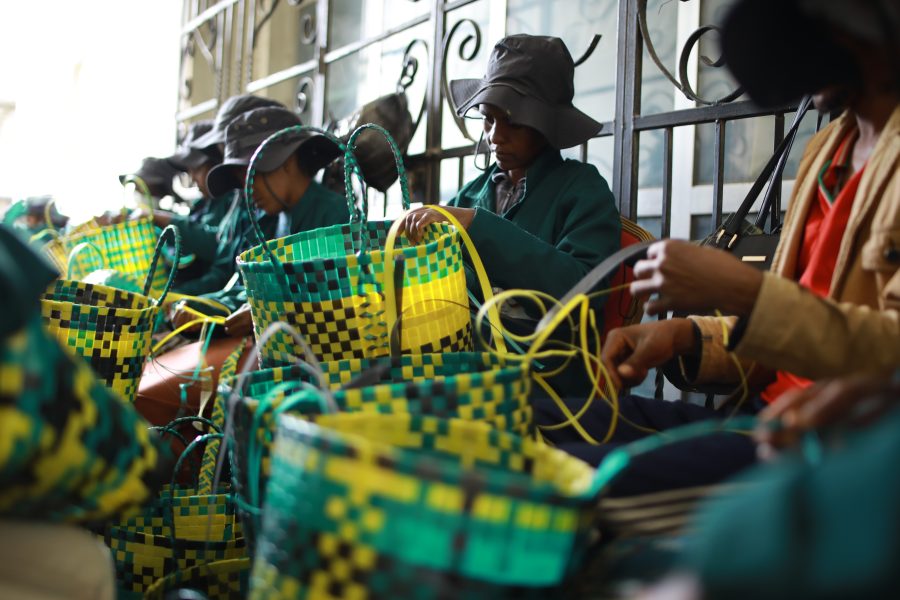
Partnership efforts for female empowerment and more efficient upcycling across Addis Ababa
The training is provided with technical support from “PETCO Recycling Community Organization”, a partner under the partnership. Further support was provided through human resource contributions from the public sector partner, the Addis Ababa Cleansing Management Agency. In total, the training is running for 10 consecutive days, divided in four groups in four locations, to make the content as accessible and targeted to the trainees as possible.
Through the trainings, women are empowered to create a profitable side business along the plastic value chain. Weaving straps out of collected PET plastic waste into baskets will allow the women to diversify their income, mitigate plastic waste price fluctuations and overall strengthen their position as confident part of the recycling value chain.
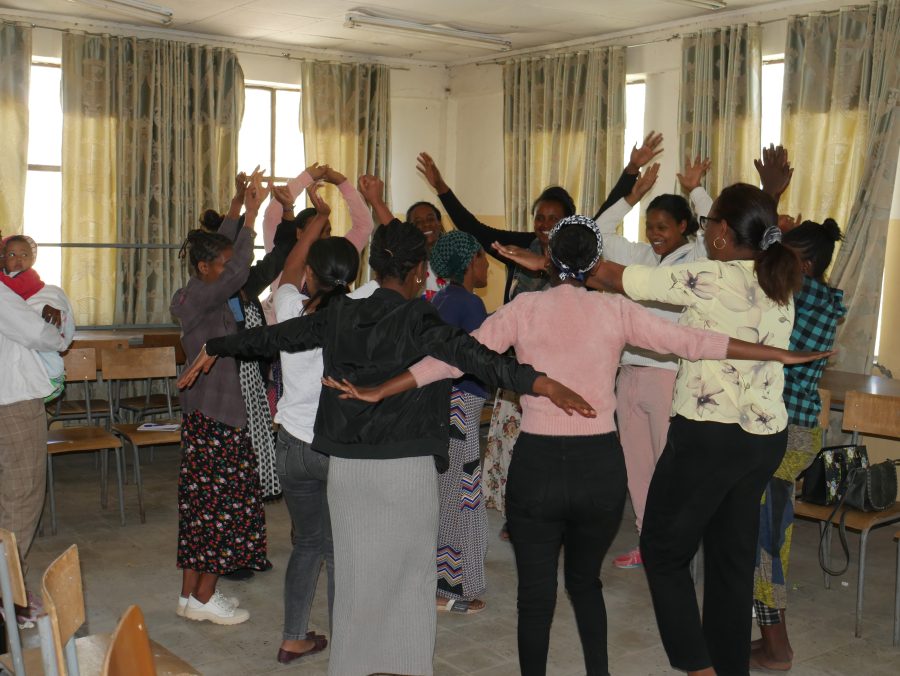
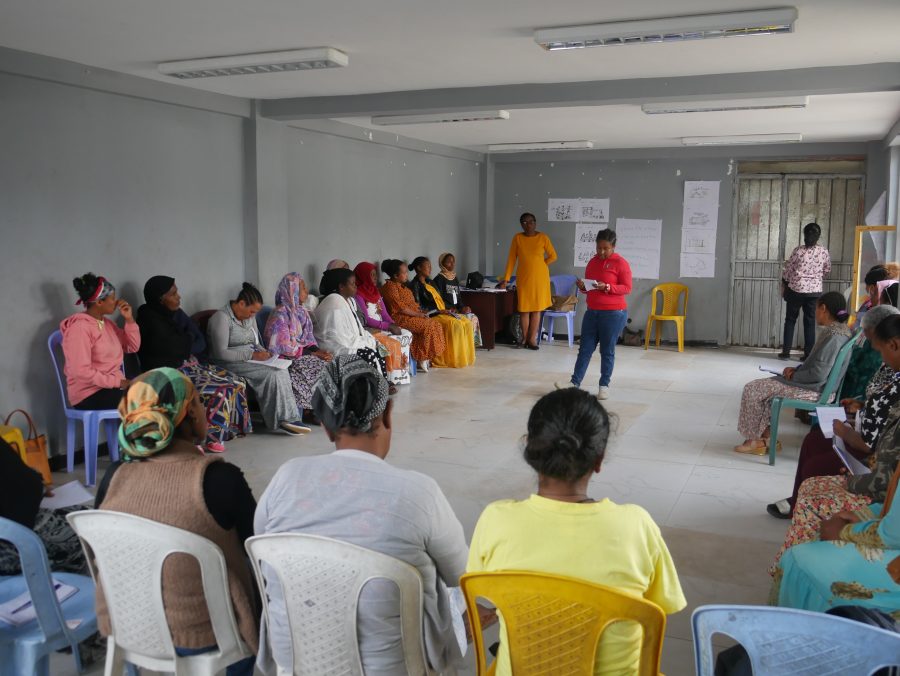
Planning for a more inclusive future of waste recycling
This specific technique for producing baskets from recycled plastics is only one example, and only the start. The partnership envisions the creation of market linkages between companies and the female waste workers, and the establishment of a new enterprise which will exclusively engage women in upcycling projects. From previous technical trainings provided by partners, they know that the profit margin and demand for such types of upcycling products is high.
The Partnership for Circular Value Chains in Addis Ababa is supported by GIZ’s ‘Natural Resources Stewardship Programme’. GIZ’s ‘Private Sector Development Project in Ethiopia (PSD-E)’ supports the partnership efforts by increasing the resilience of crises-affected micro- , small and medium-sized enterprises within the plastic value chain, while improving their income and employment opportunities.